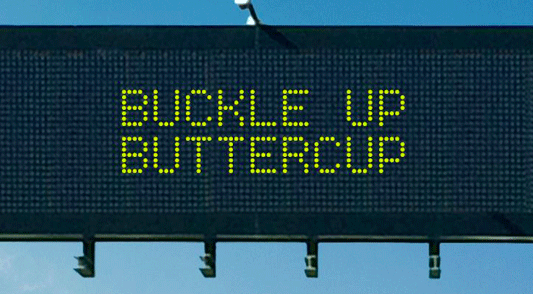
This is a pivotal moment for the online gambling sector. It’s not a moment it could have foreseen, nor is it a moment it has actively sought!
However, whilst it has not been slow to identify an unexpected opportunity to market its non-sports betting wares to a new audience, it is essential that it fully recognises the associated threats to its, its employees’ and the entire sector’s, future livelihood.
If it now fails to act responsibly in the face of the coronavirus crisis, it will have missed an even greater opportunity to prove to the public, the press and parliament that it can be trusted to look after its customers and to prioritise their health and well-being above pure profit motive.
The forthcoming government review of the Gambling Act 2005 is likely to be postponed but it has not been cancelled. If the online sector gets it right now, it will be in a far stronger position to fight its corner during that review process. If it gets it wrong, it might as well throw in the towel now.
There are certainly positive signs. In the face of the Gambling Related Harm APPG’s demand for imposition by all online operators of a £50 daily gambling limit, the Betting and Gaming Council has come up with a 10-pledge action plan agreed between its member companies. That plan doesn’t specifically address the APPG’s demand for reduced staking limits but the crucial thing is that the BGC has acknowledged the urgent need for maintenance of the highest possible safer gambling standards by its members.
What is clear is that the APPG will not give up its fight. Indeed, on the same day that the BGC announced its action plan, Carolyn Harris’s “Isolation will fuel gambling addiction. We must protect those at risk” opinion article was published in The Guardian. The APPG may yet say that the required actions pursuant to all of the BGC’s ten pledges should already have been in place. There is no doubt that more can be done to ensure that even higher standards are observed, and more will be forthcoming in this respect once the credit card ban comes into force on 14 April and we learn soon what progress has been made by each of the industry working groups on safer products, use of VIP incentives and safer advertising online.
However, as has been said before, the gambling industry is only as strong as its weakest link. It is smaller operators and non-BGC members (including UK licensed operators located offshore) who must also rise to the regulatory challenge facing the entire industry.
And it is most certainly a regulatory challenge. The Gambling Commission published its first warning to licence-holders on 18 March when it reminded them “to ensure that they have sufficient management, staffing and oversight in place to maintain compliance with the LCCP that apply to their licences”.
In that same “Guidance in light of COVID-19 outbreak” and in its CEO’s subsequent message of 26 March, the Commission also issued a specific reminder to online operators to onboard new customers responsibly, to assess individual affordability on an ongoing basis and review their financial triggers for both AML and social responsibility purposes (because customers – including VIP and high-value customers – may be experiencing a disrupted income flow or experiencing effects of isolation such as anxiety, loneliness or boredom), to increase customer interactions for those showing signs of experiencing (or being at risk of) gambling-related harm and refresh regularly the information they hold on their customers. Online operators were also warned not to exploit the current coronavirus situation for marketing purposes (which necessarily means that they must closely monitor the activities undertaken by their affiliates).
This last item will become of even more crucial importance as the full horrors of the pandemic are unveiled internationally in coming weeks. It is not just the existing requirements of the CAP Codes that need to be borne in mind (including that advertising must not suggest that gambling can provide (a) an escape from problems such as loneliness or depression or (b) a solution to financial concerns, an alternative to employment or a way to achieve financial security). Other new factors need to be taken into account too.
For example, whilst some presumably regarded “coronavirus-free” as a catchy marketing slogan a couple of weeks ago, it must surely now be realised that the sensitivities of the rapidly increasing numbers of people affected by deaths of loved ones demand significantly greater consideration by marketing teams and affiliates alike. Other regulators (for example in Malta and the Netherlands) have been even clearer than the UKGC in their expectations in this respect, the former having taken steps to ensure that neither operators nor their affiliates make any direct or indirect reference to either COVID-19 or any related circumstance in their marketing communications and the latter promising to add an additional €50,000 to its minimum existing €200,000 fine for anyone using such marketing techniques.
The Gambling Commission’s 26 March guidance was followed up the next day with its “Advice to consumers on how gambling companies should keep you safe while betting online”. Operators should carefully read that advice too in order to ensure that they are meeting every single one of the regulator’s expectations. I fully expect draconian enforcement action from the Commission for any operator that is shown to have fallen short of those expectations.
The same is true for any UK licensed remote operators (other than those few who are specifically exempted) who have failed to participate fully in GamStop when this LCCP requirement is triggered on 31 March. Any operator failing to do should anticipate their licence being reviewed (and, in all probability, suspended pending determination of the review). The Gambling Commission has shown in the recent cases of Matchbook, MoPlay, Stakers and Lotteries.com that it will not hesitate to suspend operating licences when it considers it necessary to do so. I also believe we may yet see even higher financial penalties in future than those imposed within the last month or so on Mr Green and Betway.
So, to mix my clichés, the pivotal moment is upon the online gambling sector, but the die is not yet cast. I sincerely hope the sector makes the correct decision.
Moving on, examples of other coronavirus-related regulatory issues for operators to immediately look out for include the following:
- Key event notifications if, for example, (a) an act of insolvency, breach of banking or loan covenant or commencement of material litigation occurs, (b) a change of key management position takes place or (c) trading on a website domain ceases;
- Ordinary Code notifications if anything else happens that will have a material impact on their business or their ability to conduct licensed activities compliantly and consistently with the licensing objectives (including any material change in the structure or operation of their business and any material change in managerial responsibilities or governance arrangements);
- The need to ensure that no unfair cash withdrawal restrictions are imposed on customers wishing to access funds held in their accounts (including requests for additional information that could reasonably have been requested previously);
- At a time when the industry is inevitably under a greater level of regulatory scrutiny by the Gambling Commission, a need to (a) review relevant risk assessments and resultant policies and procedures and/or (b) increase or improve training on all aspects of compliance-related activity, given the reportedly greater risk that now exists in terms of exploitation of weaknesses in operators’ AML/CTF and social responsibility systems and controls;
- Fresh betting integrity issues will need to be carefully considered, not only in relation to activities as obscure in normal times as Swedish harness racing and chess tournaments but also in what may well transpire to be an ever-increasing worldwide e-sports market;
- For those looking to provide an alternative to sports betting, the need for a specific licence authorisation to offer betting on virtual events, meaning that operators who hold merely a remote general betting (standard) (real events) or casino licence will need to apply to add this further licensed activity, although they will also need to bear in mind that Gambling Commission staff are currently working from home, so affected operators should not expect their applications to be fast-tracked.
Next, let us not forget that although the last few weeks have understandably been dominated by the coronavirus pandemic, there have been other developments that should not be ignored.
Examples include:
- publication by the Gambling Commission of its “Gambling participation in 2019: behaviour, awareness and attitudes” annual report (revealing, amongst other things a reduction – from 0.7% in 2016 to 0.5% in 2019 – in the proportion of respondents classified as problem gamblers);
- newly commenced consultations by the Gambling Commission (each of which will run to 20 May 2020) in relation to its regulatory data reporting requirements and display of licensed status requirements;
- criticisms from each of the National Audit Office and the Gambling Business Group with regard to the effectiveness of performance and impact evaluations by the Gambling Commission;
- progress in planning for the introduction of compulsory gambling education in UK schools with effect from September 2020, and
- the announcement of a new test house approval and accreditation process.
I have focused in this article on the online gambling sector, notwithstanding the unprecedented enforced closure of all UK land-based gambling businesses on 21 March. To describe the last month as “eventful” is a gross understatement. It has been like no other month that I have experienced in my lifetime. I sincerely hope not only that all readers of this article stay safe and healthy but also, at this pivotal moment, I hope that this entire industry (that I have had the pleasure and privilege to work for and with for close to 40 years) itself stays safe and healthy.
___________________
David Clifton – Director – Clifton Davies Consultancy Limited










